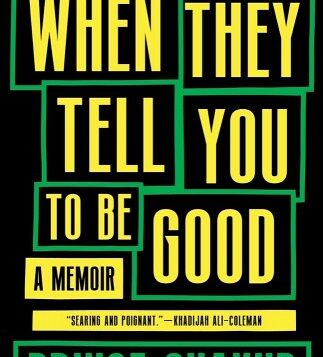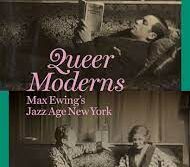IN THE NEW MEMOIR When They Tell You to Be Good, author Prince Shakur explores a slice of America that’s seldom visited: first-generation queer Caribbean immigrants growing up in the Midwest. He invites us to bear witness as he negotiates the often treacherous borders of race, sexuality, and Jamaican culture. Much of the book revolves around his journey to uncover the truth about his father’s death and to reimagine what his life might have been like had he received the parenting that he needed. There’s an adolescent angst and young adult pathos in the memoir to which we can all relate. Shakur reminds us that there is no guidebook for young, queer Black boys and men.
In this memoir, Shakur searches for emotional and political meaning in a country that can no longer hide from its racist past. We follow his political and personal journeys from Ohio, back to Jamaica, to the Philippines, to France, and to the Standing Rock Reservation in North Dakota. His dramatic disappointment at the lies and compromises that ripple through the American Dream, particularly for immigrant families, is lamented in ways both poignant and painful.
Accounts of childhood can be tedious for older readers unless they tell us something important about how they shaped the narrator as a person. Shakur offers tales of younger years that are both mundane and life-changing. Children play, parents scold, but in the first section of the memoir, Shakur is deeply moved by the passing of his friend’s mother, the only person in his life who (sort of) accepted his queerness.
Writing a memoir with broad appeal can’t be easy, particularly for a young person. (The author is not yet thirty.) The work must be personal and true, but must also evoke shared experiences of joy, grief, and understanding that engage a reader of any age. Shakur succeeds boldly at the former but often loses the emotional connection. Descriptions of lovemaking are sterile and pedestrian. One example: “We fondled each other’s bodies. I took his cock in my mouth. I made him lose himself under my touch.” Shakur apparently loses his virginity in a threesome in Manila that’s recorded somehow on a cellphone. The possibilities for storytelling here are endless, but Shakur simply states these odd circumstances without emotion or explanation. Does he find this feature of his first sexual encounter exciting? liberating? shameful? The reader is left not knowing how to feel, because we’ve got no clue how Shakur feels.
There are some moments of insight that will ring true for many readers, and they are told in well-constructed prose: “I’d learned to be proud to be queer, but the next battle was how to manifest desire moment by moment. Virginity felt like a threshold, a boundary that proved that I was a part of the waking world.” But there are also moments when people and events collide jaggedly with little explanation or rhythm. We’re escorted along a timeline that only the memoirist seems to understand. The signposts at the beginning of each chapter ground us in the various stages of the writer’s life. But without much else in the way of a through-line, it’s easy to get lost. I believe the last chapter was meant to be an imagined encounter between Shakur and his long-dead father. Experimental prose can be effective in a memoir, but this incident happens so abruptly, with so little preparation, that’s it’s hard to be sure what’s going on.
Shakur is undoubtedly a talented writer with a lot to say, but When They Tell You to Be Good ends up as little more than a collection of anecdotes strung together with vague ruminations on dead fathers, Caribbean immigrant culture, and queer alienation. That’s not enough, but I’m sure that this writer will have more to say the next time around. ____________________________________________________
Cary Alan Johnson, a writer, activist, and Africanist, is the author of the novel Desire Lines (Querelle Press, 2022).






